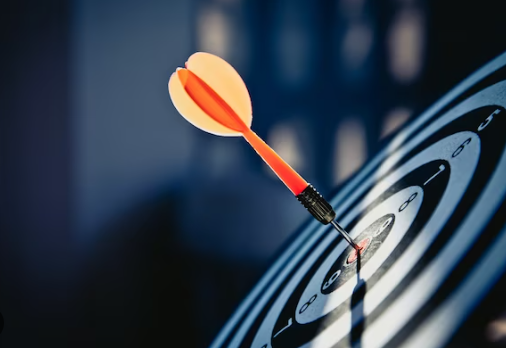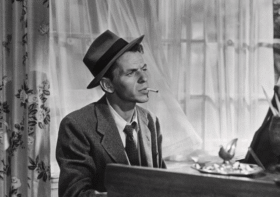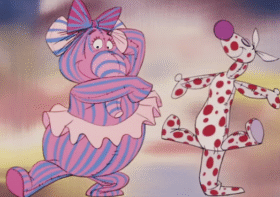Precision Is Overrated

The older I get, the more I realize that “precision” is overrated.
Not only is it overrated, it can actually be detrimental.
Now, this sentiment can be expressed as the well-worn “don’t let perfect be the enemy of good”, as in “don’t get so bogged down in making something perfect that you fail to execute it properly”.
But while I feel most people understand that concept, they still try to be as precise as possible, not realizing one critical factor: precision is often not even needed and, in some cases, just gets in the way.
I started thinking about this the other day when I glanced at my watch. I was wearing my Lorier Zephyr which only has two hands. In my review of the watch, I wrote about how, at first, the concept of only having a watch with two hands took a little getting used to. I always thought everyone just needed the third hand (the seconds hand) for accurately timing… well… anything.
After wearing the watch for a few months, I don’t miss the third hand at all. The reason why is because I just don’t need that level of precision in my life.
And I am pretty sure you don’t either.
Now, I know that for some, the concept of NOT being precise in their day to day lives is completely unfathomable.
But don’t mistake what I am trying to say here. I do believe there is a place for some level of precision but you shouldn’t apply it the same way across every aspect of your life.
Ok, I feel like I have been a little vague up to now, so let’s get specific (but not too precise)…
Using my watch example from earlier… I check my watch to see if I need to leave to pick up my son from school. I see it’s about three minutes until I need to go. Perfect. I close my laptop, trot upstairs, get my shoes on, head out the door.
Did I need to know that it was exactly two minutes and thirteen seconds before I had to leave? No. In that moment, I had no need for that level of precision.
Or how about combing my hair when I get out of the shower? Sure, I run a comb through it for a minute or two, but I don’t spend a ton of time in front of the mirror. What’s the point? It’s just going to shift around immediately after I step out of the bathroom, anyway.
Let’s look at a work scenario… I was in a meeting with our big boss one day as he presented some prior-year numbers and some coming-year projections to the team. On a chart which summarized maybe ten years of numbers, there was a blank spot. He just told us he couldn’t find the number so he just omitted it and moved on. I mentioned this in my Guiding Principles article and talked about how amused I was at how unbothered my boss was at not including that number. It didn’t really affect the story he was trying to tell to us about the direction of the business so he didn’t dwell on it. He just moved on.
He decided that a certain level of precision just wasn’t needed.
How does this apply to our clothes, though?
I always talk about how I stopped caring too much about the perfect trouser break or the perfect amount of shirt cuff showing under my jacket or the perfect collar roll on an oxford-shirt and stuff like that. But not worrying about that stuff is the natural progression for someone who is used to wearing classic menswear. After a while, being neurotic about the “rules” just fades away. It’s a comfort and confidence thing.
But I want to go a bit further. Lately, I have noticed that I no longer care too much about how I combine clothes of mine.
In the past, I used to be very precise about combing my clothes logically (or, my own definition of “logically”). And it made sense. Certain items just look good together. A leather jacket looks better with a pair of boots than a pair of boat shoes.
But I was a little too restrictive. Lately, I have allowed myself much more latitude when it comes to pairing chore coats with polo shirts, or linen shirts with work boots. I’ve realized that being overly precise about my wardrobe has been severely limiting.
Where does this overall need for precision come from? Why do we feel the need to track our sleep or know exactly how many minutes is left in our movie? What do we ultimately do with that information? Why do we seek it in the first place?
I think it’s about control. Technology has made us used to having the illusion of control. We have all the information we need at our fingertips at all times, so it feels very strange, all of a sudden, to not know what the weather is going to be or how many steps we got yesterday.
The problem with this need for precision is that it’s not efficient. We spend so much time making sure we are precise in everything we do, we lose sight of where we SHOULD be deploying those forces.
Here is an example of an area where you should always strive for precision: the words you use with your spouse and your kids.
Don’t fatigue your willpower and decision-making abilities by striving for absolute precision in every other aspect of your life. Identify what’s most important to you and then attack those areas with ferocity.
Devoting energy somewhere that could be much more wisely spent elsewhere is TIRING! Think of it this way: if you were in a competition to see who could eat the most crabcakes, would you waste time eating the lettuce it was served on and the lemon that came with it? No. That would be an inefficient distribution of your time and energy and it wouldn’t matter for your ultimate goal.
As conscientious dads, it’s hard to willingly give up that feeling of control. But that’s just what it is: a feeling. You already know that parenthood is a futile attempt to exert control in an out-of-control and unpredictable universe.
But remember to relax and enjoy yourself. And make sure that your focus is where it really should be.



